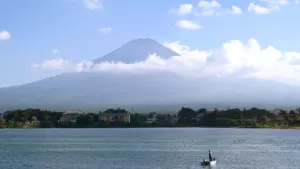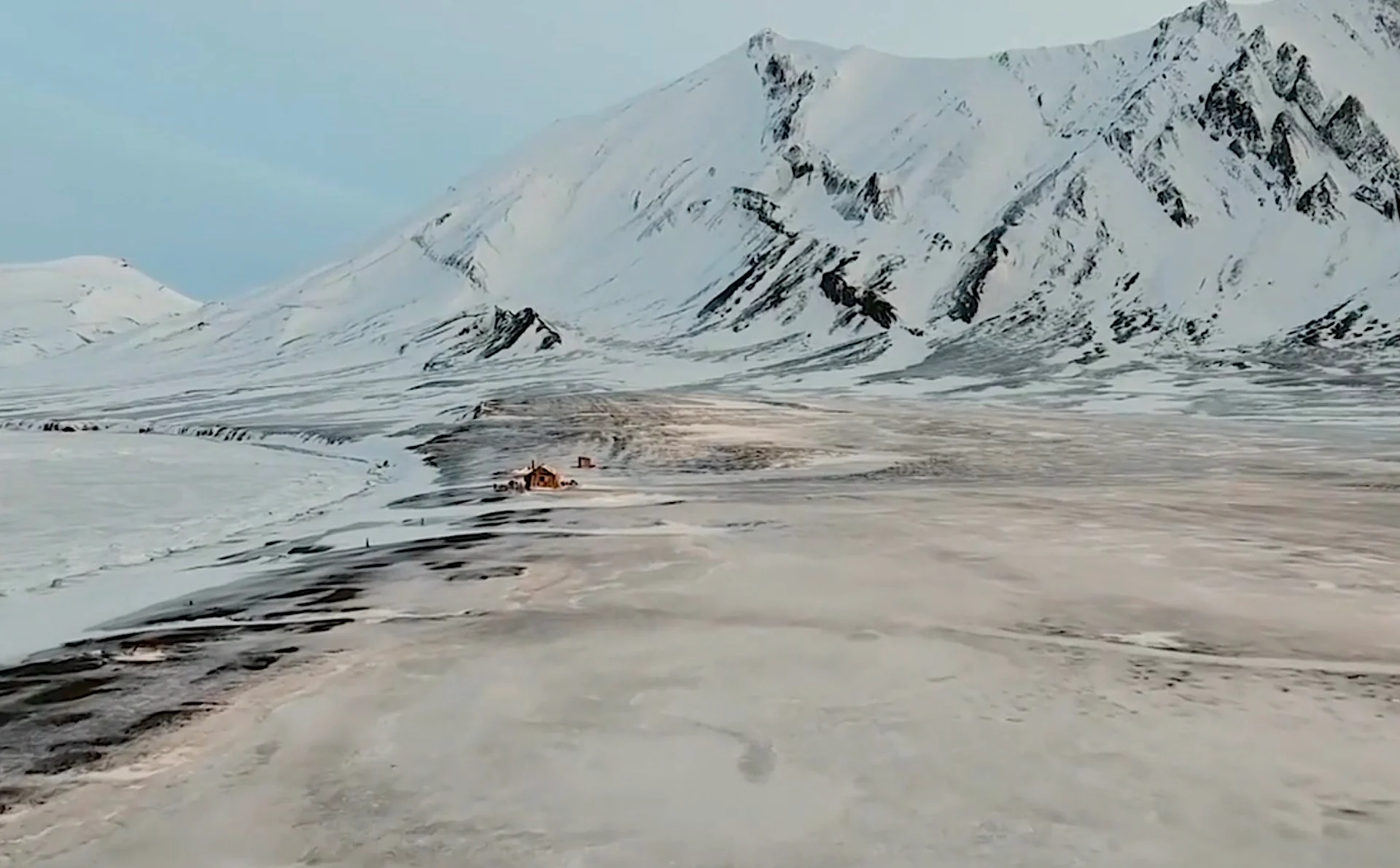
Hearts for Earth: Two women channel solitude in Norway into climate win
A 19-month, solitary expedition for two female citizen scientists in the remote locale of Svalbard, Norway, was all in the name of climate change. The Weather Network's Jaclyn Whittal recounts their steps in a new episode of the Melting Point, while highlighting her own personal journey in the fastest-warming place on the planet
In 2019, a desire to disconnect from the world for a while turned into a life-changing journey for two women in the remote reaches of Svalbard, Norway.
Female citizen scientists Hilde Falun Strom, a Norwegian polar explorer and a resident of Svalbard, and Sunniva Sorby, a part of the first women’s trek to the South Pole in 1990, spent 19 months in solitude in Svalbard.
RELATED: How the fastest-warming place on Earth copes with rapid glacial melt
Their mission was to document and collect scientific data on behalf of NASA, Polar Bears International and other organizations, as well as to connect with people from around the world on topics related to climate change.
Falun Strom and Sorby, who started a non-profit group, Hearts In The Ice, set out to see the calving glaciers for themselves and to learn and discuss solutions for our changing planet.
The pair quit their jobs and left everything behind in order to take on this new, life-changing trip.
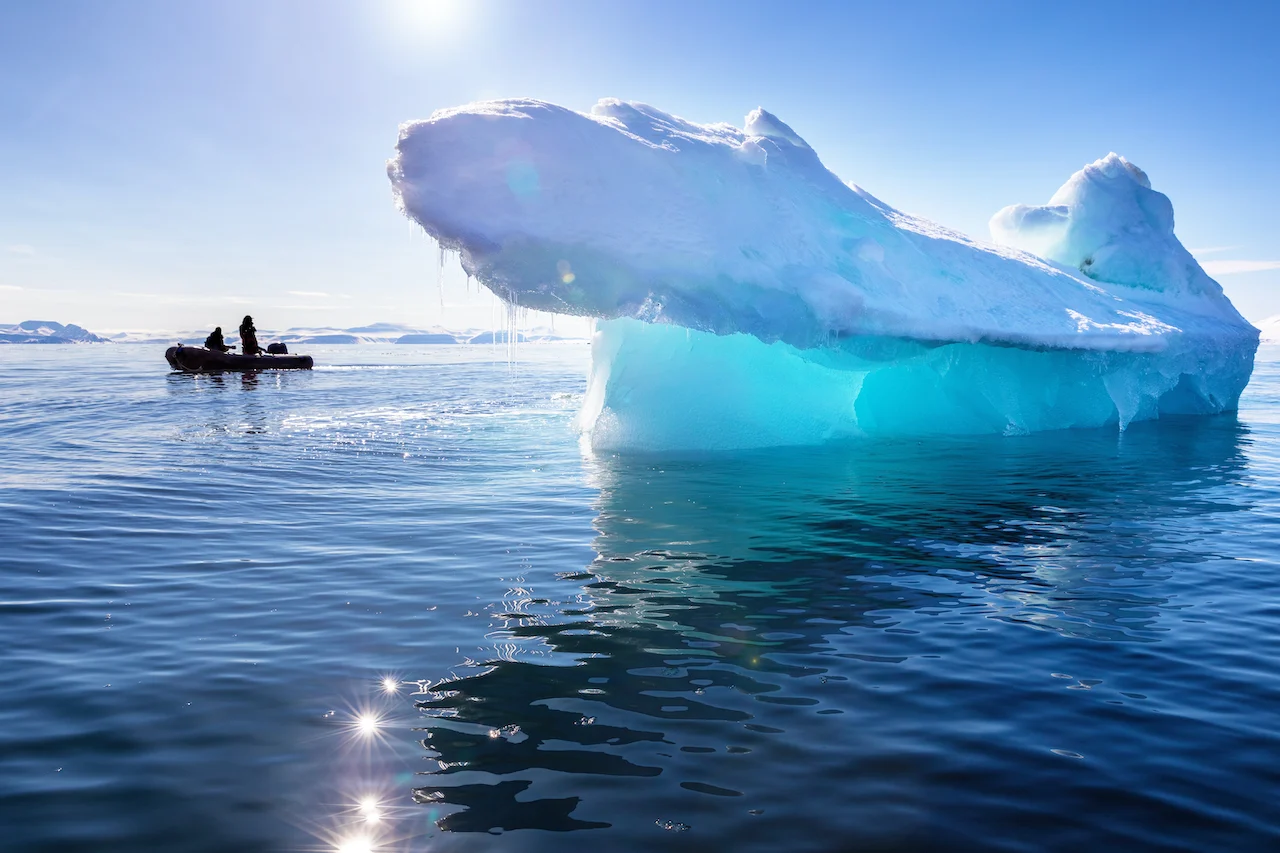
(Getty Images-1327251915/Rixipix)
In 2023, Jaclyn Whittal, a meteorologist at The Weather Network, spent time in Norway on an expedition to document the effects of climate change in the northern European country, and to share the 19-month journey of Sorby and Falun Strom.
"It's hard to measure time up there because we have no point of reference to anything that anyone in our connected world would be familiar with because we are untethered, we are remote," Sorby told Whittal. "We are 140 kilometres from the closest town. Our neighbours are wildlife and our backyard is ice, snow, light and mountains."
Fastest-warming place on Earth is the 'epicentre for climate change'
Svalbard is a Norwegian archipelago in the Arctic Ocean, situated north of mainland Europe. It is considered to be the fastest-warming place on Earth.

(Getty Images/Patrick J. Endres)
"With a melting rate of four times the average of other Arctic locations, and a place where glaciers can be seen crumbling almost daily, we must protect this place in the world," said Whittal.
Svalbard is considered to be the epicentre for climate change, according to Heidi Sevestre, a glaciologist, because of how fast the locale is warming and the rapid loss of sea ice. "A few decades ago, you would find sea ice here most of the year."
Overwintering in a uninsulated cabin
What began as a seven-month journey ended up finishing as a 19-month trek, with the COVID-19 pandemic prohibiting transportation to pick them up at Bamsebu.
For nine months of their stay, the pair did so while overwintering in an uninsulated hut named Bamsebu, a historic trapper’s cabin on the shore of the Van Keulen Fiord. That was a feat never before done by two women without the accompaniment of men.
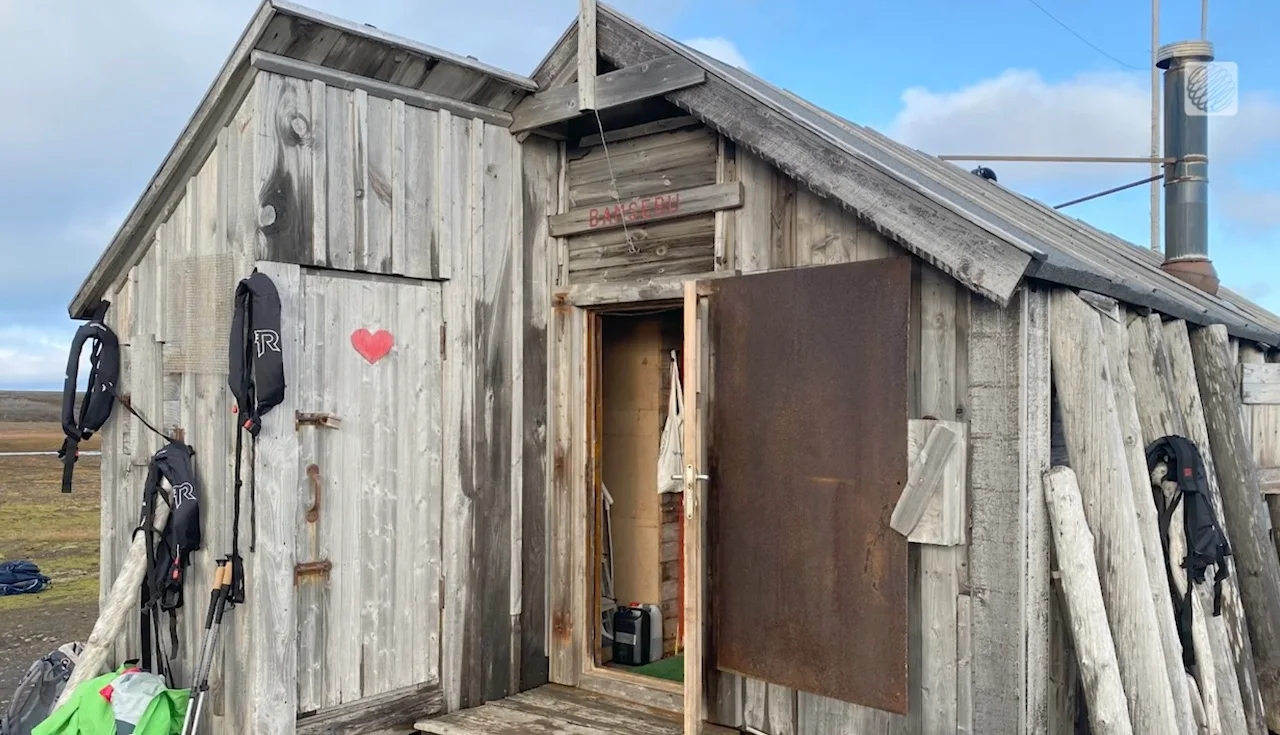
(Hearts In The Ice)
"Nineteen months felt like a really long time," said Sorby. "We have two solar panels on the outside of the hut and a huge windmill to power our needs so that we can have connectivity, and send emails every now and again."
Falun Strom, a member of the Explorers Club, has been accustomed to the outdoors her whole life, and the thought of overwintering in a remote cabin has always been intriguing to her.
"I really wanted to do something different in my life. I really wanted to make a change," said Falun Strom.
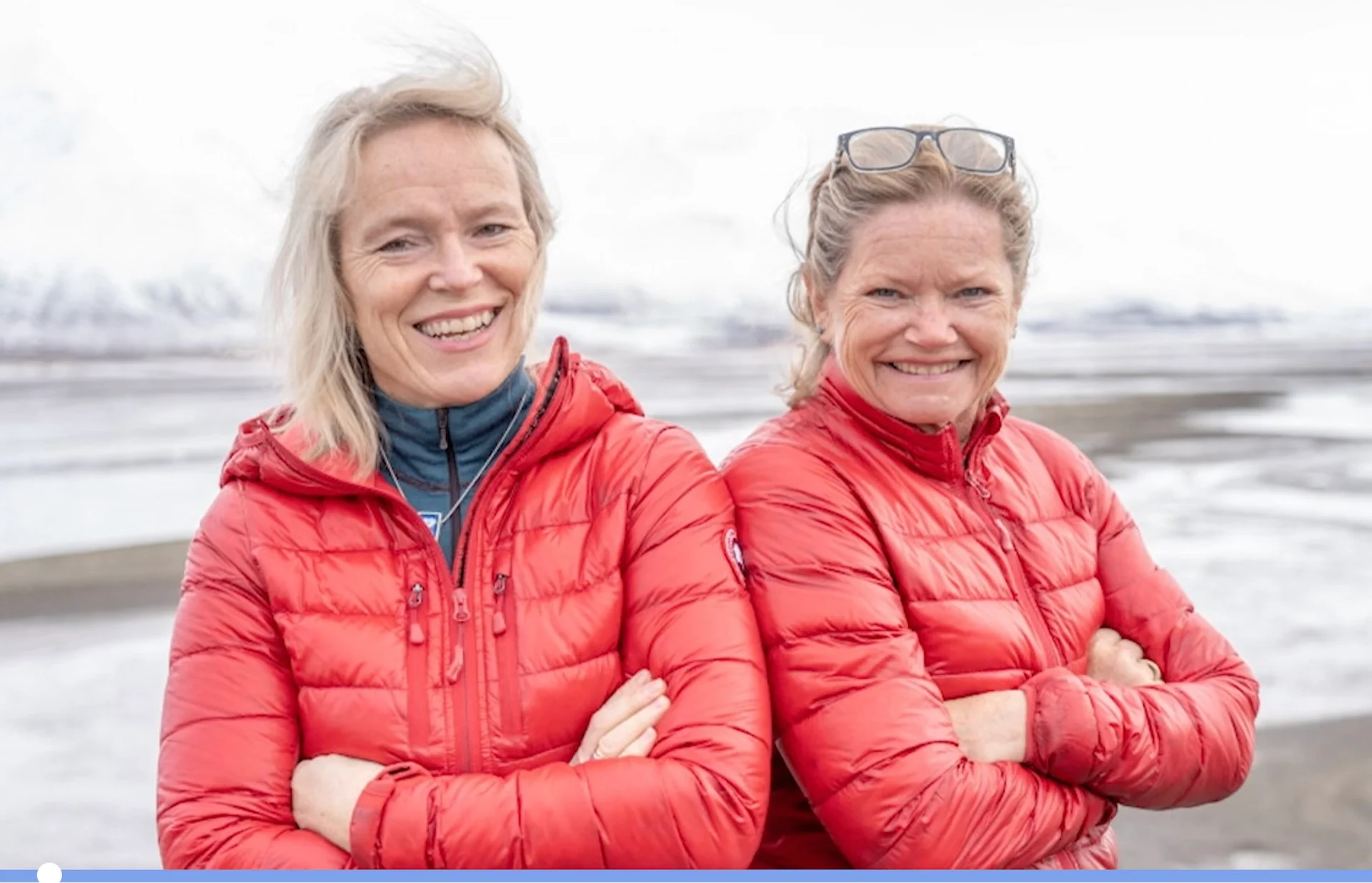
Hilde Falun Strom, left, and Sunniva Sorby, right. (Hearts In The Ice)
Sorby is also familiar with the outdoors having been on numerous cold-weather expeditions. Not only was she a part of the first women’s trek to the South Pole in 1990, she has visited the polar desert in Antarctica dozens of times since. She has given lectures on ships to educate people about the unique locales on Earth, and the importance of protecting them.
Hearts In The Ice springs into action
Part of the job for Falun Strom and Sorby while in Norway was to obtain phytoplankton samples to see how and if there was activity in this part of the world, particularly during the polar night, which is 24 hours of darkness.
"You have these two incredible women, who have their own accomplishments, who are also so passionate about sharing the story of regular people getting involved in the solution," said Allison Cusick, a biological oceanographer at the Scripps Institution of Oceanography.
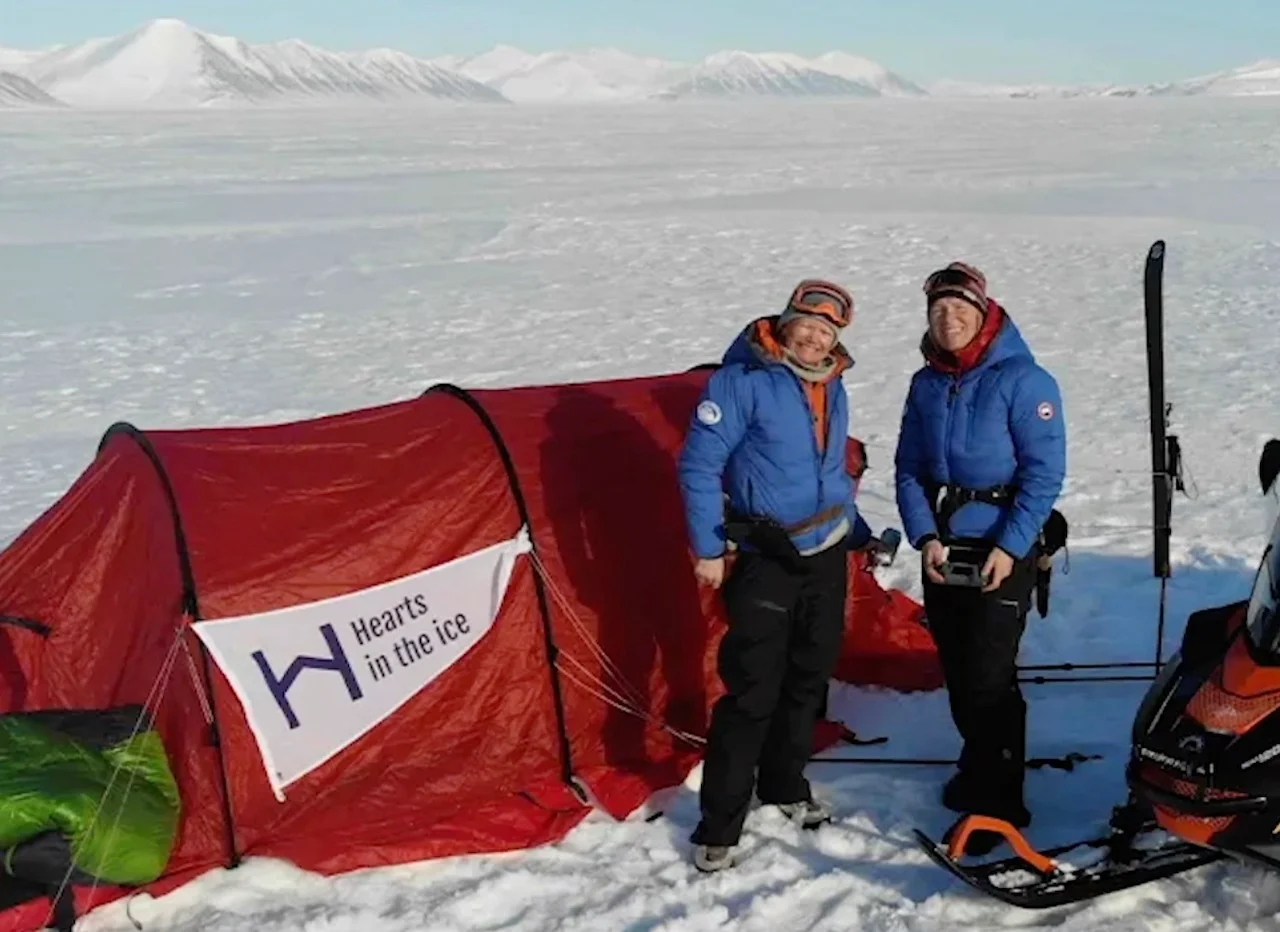
Sunniva Sorby, left, and Hilde Falun Strom, right. (Hearts In The Ice)
Falun Strom and Sorby's prolonged visit to Svalbard also included an educational component. The pair partnered with Exploring By The Seat Of Your Pants - a Canadian organization that connects explorers to classrooms virtually.
With their lessons while there, they reached more than 100,000 students around the world. The women discussed their citizen science work with the media, other scientists and classrooms.
Another key citizen science project they were involved with was monitoring ice, ocean temperatures and thickness, and even wildlife with drones.
"Probably one of the most powerful things we did was to record wildlife, document what we were seeing around us because there was plenty of wildlife here," said Sorby.
The types of thermal cameras that were used are beneficial for recording objects that are relatively cooler or warmer than their surrounding environment.
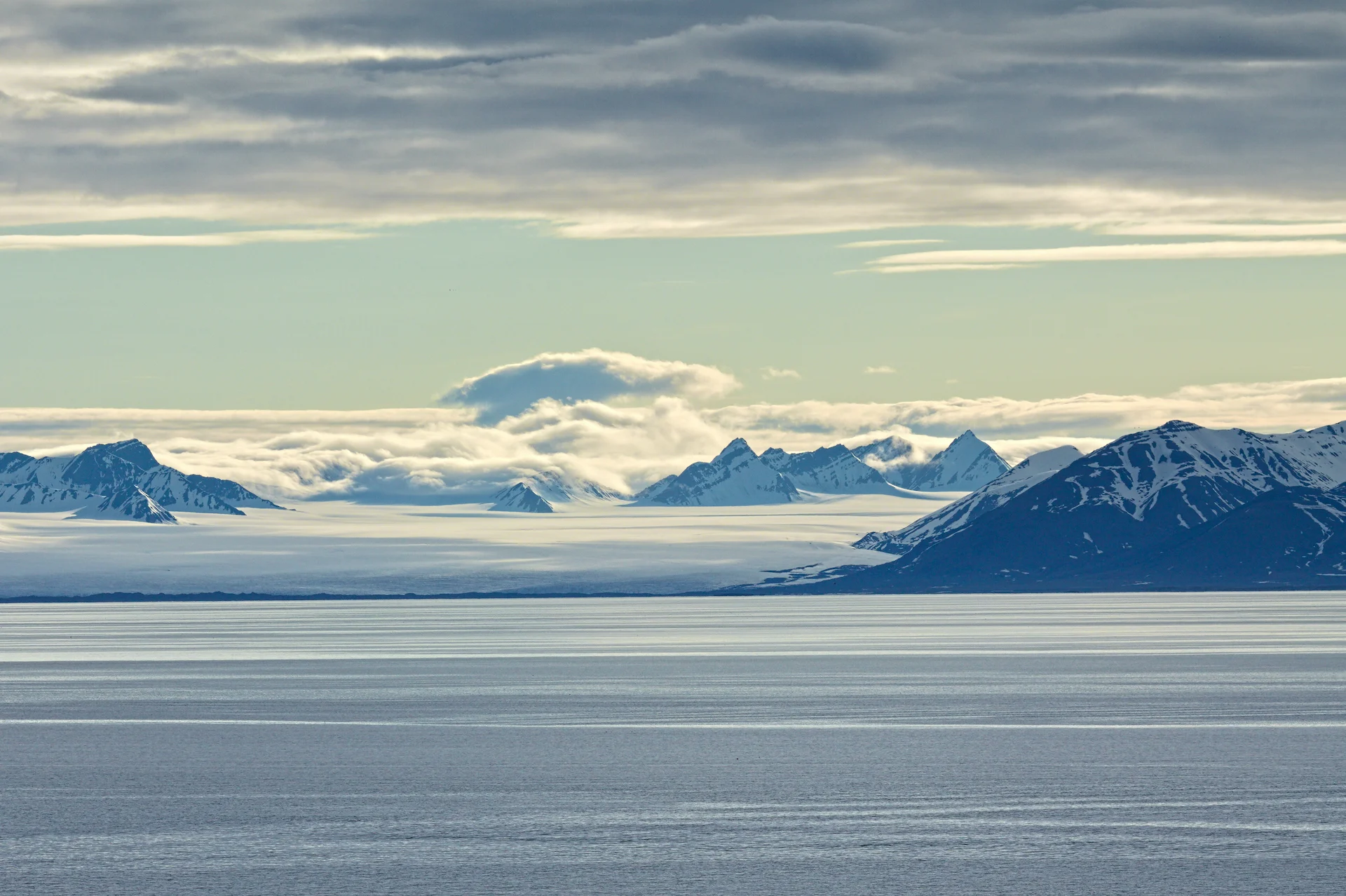
(Getty Images-1776622592/Krzysztof Flasza)
Falun Strom and Sorby launched Hearts In The Ice to "deepen our understanding of climate change and how powerful individual action can be," according to a description on the website.
"You matter more than you think. We're in a world where it's so depressing. Don't stop believing that you really have an impact that you can make through your voice or through your personal actions," said Sorby.
Whittal learned a great deal from her Svalbard trip, whether it was the calving glaciers, the ocean currents and how they continue to warm, or the power of interpersonal relationships.
"It takes an army, all of us, to make changes to better the world that we live in. Most of all, I learned the importance of relationships and the power of friendship, trust and bravery," said Whittal.
WATCH: Melting Point: The Fastest Warming Place on the Planet
Jaclyn Whittal was elected a fellow of the Explorers Club in 2023. You can also check out the first episode of the Melting Point documentary, here.
Stay tuned for additional coverage on Jaclyn Whittal's trip to Norway, coming soon to The Weather Network.
With files from Jaclyn Whittal, a meteorologist at The Weather Network.
Thumbnail courtesy of Hearts In The Ice.
Follow Nathan Howes on X, formerly known as Twitter.











